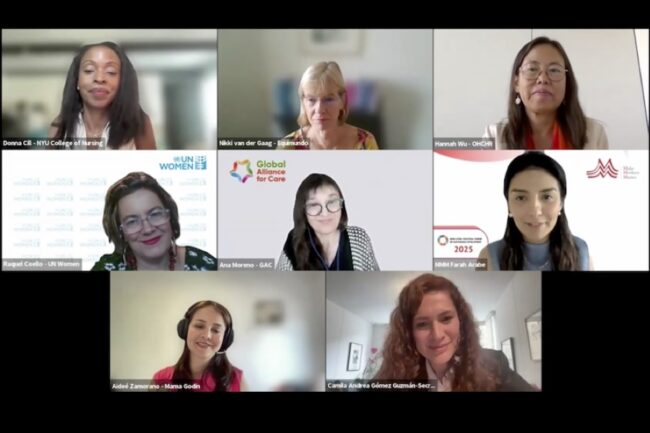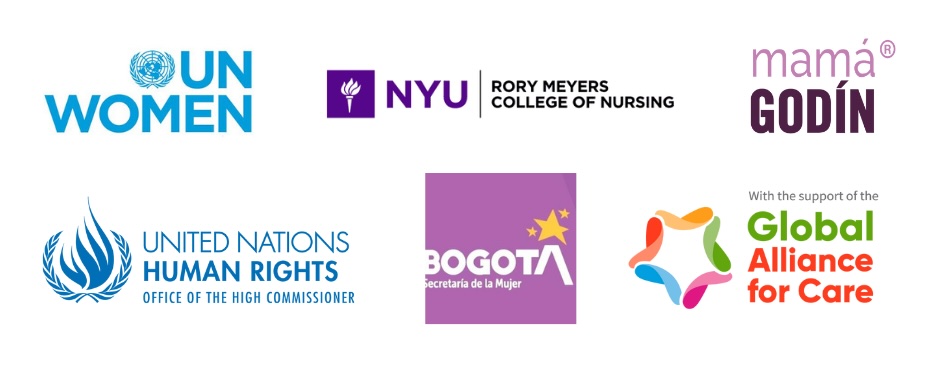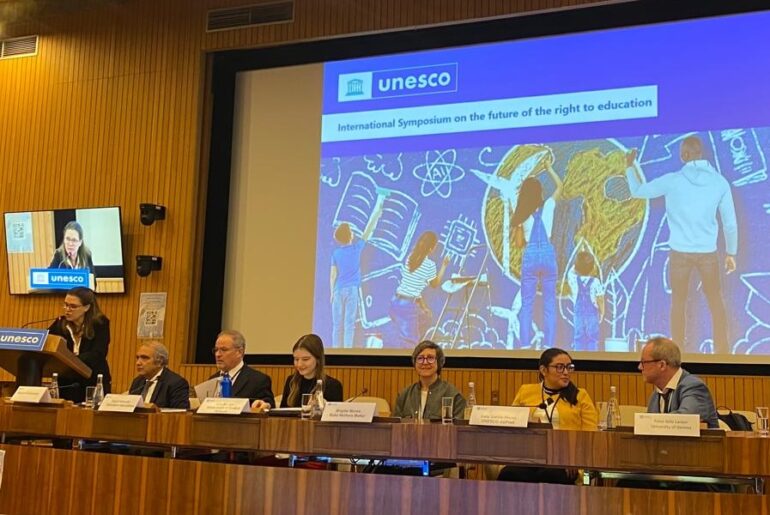Human-Centred Strategy: Care at the Core of Sustainability
29.07.25
UN New York – On 16 July, we hosted a side-event at the UN High Level Political Forum (HLPF) titled Unpaid Care at the Core: A Catalyst for Achieving the SDGs. The event aimed to highlight the inter-linkages between unpaid care work and the Sustainable Development Goals - in particular SDG5, SDG3 and SDG8, which were under review this year - and to showcase effective policies and practices that place care –and mothers – at the heart of policymaking, generating powerful synergies across sectors and goals.

Our main objectives:
- Highlight the centrality of care to the realisation of many SDGs beyond SDG 5, in particular SDG 3 and SDG 8
- Show how addressing the issue of the inequitable distribution of unpaid care and domestic work in a cross-sectoral manner can foster synergies, thereby contributing to the implementation of SDG 3 (including early childhood development, mental health) and SDG 8 (including women’s labour force participation, a just transition)
- Provide concrete examples of policies and practices that have successfully created such synergies
- Call on governments at every level to implement cross-sectoral care systems that recognise, support and redistribute the unpaid work of caring
Key takeaways
- Care is a strategic lever for sustainable development, cutting across sectors and goals. It must be institutionally embedded within policy planning and implementation at all levels, from local to global, to drive progress toward the 2030 Agenda
- The unequal distribution of unpaid care work is both a driver and consequence of gender inequality, with profound implications for women’s physical and mental health, labour force participation, and access to rights, particularly among mothers, migrants, and those facing intersecting forms of marginalisation
- Advancing care systems requires a paradigm shift toward inter-sectoral, inclusive, and life-course approaches that address the needs of both caregivers and care recipients, while recognising the diversity of caregiving arrangements and lived realities
- Reframing care as a collective social and economic responsibility is essential. This demands a move away from its relegation to the private sphere, toward its recognition as a public good, funded, legislated, and institutionalised as a matter of justice and societal resilience
- The current policy moment presents a critical opportunity. Global milestones, including Beijing+30, the World Social Summit, and regional reviews, must be leveraged to elevate care within global development frameworks and to ensure accountability for care-centred, gender-transformative action
![]() Read the event’s reports with takeaways from each speaker
Read the event’s reports with takeaways from each speaker
Recording of the event
Program
Welcome & introduction
- Farah Arabe, Representative to the UN in New York, Make Mothers Matter
Moderator
- Raquel Coello Cremades, Policy advisor macroeconomics and Global lead on Care, UN Women
Panellists:
- Donna Cill, Associate Professor and Deputy Director, NYU Rory Meyers College of Nursing – PowerPoint presentation
- Hannah Wu, Chief, Women’s Rights and Gender Section, OHCHR
- Nikki van der Gaag, Consultant & Writer; Senior fellow at Equimundo – PowerPoint presentation
- Aideé Zamorano, Founder and President, Mama Godin, Mexico – PowerPoint presentation
- Camila Gómez Guzmán, Director, District Care System, City of Bogota, Colombia – PowerPoint presentation
Concluding remarks
- Ana Moreno, Technical Secretary, Global Alliance for Care
We extend our sincere thanks our speakers for sharing their expertise and insights on the linkages between care and the realisation of SDGs beyond SGD 5, in particular SDG 3 and SDG 8, and providing concrete examples of policies and practices that successfully unlock synergies between these interconnected goals.
This webinar was an official side-event to the 2025 High Level Political Forum (HLPF), the annual UN meeting to assess the implementation of the 2030 agenda and its 17 Sustainable Development Goals and to discuss the way forward.
See also:
- Our invitation article, with background information, speakers’ bios and additional resources
- Our 2025 HLPF written statement on Placing Target 5.4 at the Core: A Key to Accelerating SDG Synergies

The New EU Gender Equality Roadmap : A Call for Inclusion of Mothers
04.03.25
The European Commission’s initiative on a new Gender Equality Roadmap post-2025, marks a significant step forward in addressing gender disparities across the European Union. Make Mothers Matter (MMM
Breaking the Cycle: Gender Equality as a Path to Better Mental Health
18.03.25
The Council of the European Union has taken a decisive step in recognising the vital connection between gender equality and mental health.
Europe Must Listen to Mothers: Our landmark report heads to the European Parliament
28.08.25
On 22 September 2025, the voices of mothers will take centre stage in Brussels. For the first time, Make Mothers Matter (MMM) will present its State of Motherhood in Europe








